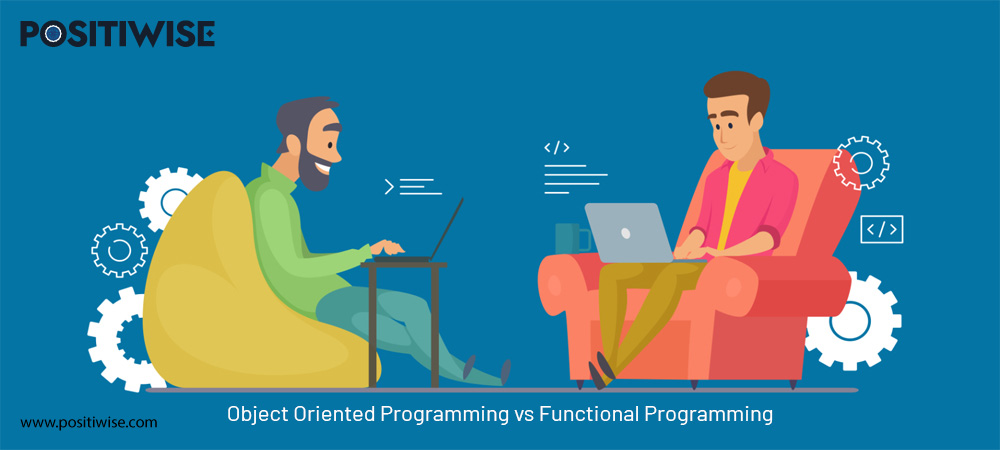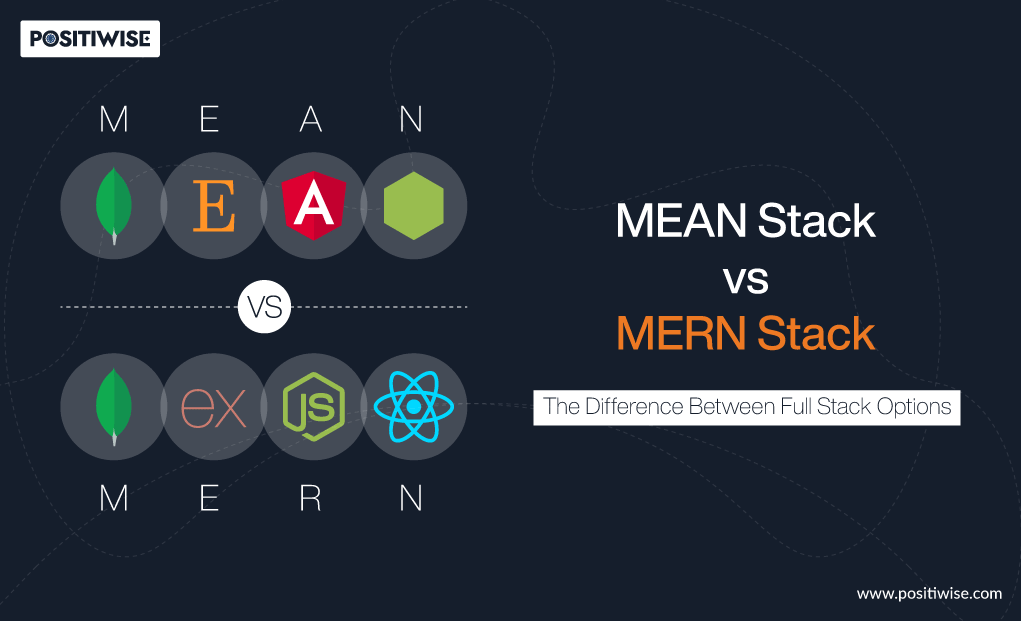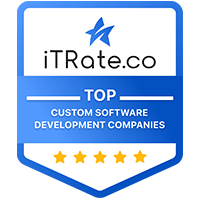Quick Overview:
When developing a new application, developers often ask themselves which technology, framework, and programming language to use.
But, with this, an additional query arises, and that is of the development paradigm to be used. And every developer comes down to Functional Programming vs Object Oriented Programming for selecting an appropriate option for the software project.
The discussion of picking out a paradigm is going on for an extended period, and to get a result, you can go through this article and learn about the concepts of these programming paradigms.
Overview: Functional Programming VS Object-Oriented Programming
Every developer has once been introduced to the terms Functional Programming and Object-Oriented Programming. But, there are many few who understand these terms.
Before moving on to the definition of these two, you should know what a software paradigm means.
A software development paradigm is a set of rules, methods, or a defined structure of writing code to process the user input to provide a relevant output. Different principles and strategies align with each programming language available for software creation.
Many programming languages offer multi-paradigm programming, so it is not essential to follow a particular paradigm when using a programming language.
Various development paradigms are available, but Functional and Object-Oriented Methodologies are the two most common, scalable, and popular paradigms among industry experts.
It would be best to consider the pros and cons of these both before picking out a particular structure for your project. So, let’s move ahead to understand them.
What is Functional Programming?
In the functional programming paradigm, developers follow a declarative approach, where they define pure functions as the primary component. Additionally, they ensure that all functions are immutable, meaning they cannot be modified once written, and their output remains consistent.
For instance, if you have written a function called Products() to calculate several products in the cart and if you select an exact number of products every time, its output will not vary.
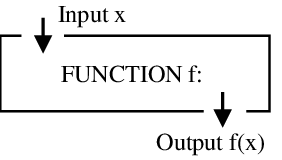
The main objective of this programming paradigm is to separate the behavior and data so that developers can gain a better insight into the project scope.
Developers heavily prefer functional paradigm-based programming languages such as Haskell, JavaScript, Python, Scala, Erlang, Lisp, Clojure, and Racket for data science and analytics.
This is the most basic information you must know to understand the programming concepts. Now, let’s have a look at the different concepts of Functional Programming:
- Reusable functions and effortless code management without any modification
- Lazy Evaluation
- Nested and Pure Functions
- Functions with statements to execute a specific process
- Type Systems and Referential Transparency
- High Order Functions and Recursion
Now, let’s move further to the concept of OOP!
What is Object Oriented Programming?
The Object-Oriented Programming paradigm follows the imperative approach, also known as the procedural mechanism to write and manage code using classes and objects.
We consider classes as blueprints for defining the structure of an object along with its function and behavior. And objects are the class instances containing data and code in the form of fields and procedures, respectively.
Therefore, the object is the primary and fundamental unit of OOP programming methodology, and it consists of the following elements:
- A unique name to identify it
- A state describing its characteristics and attributes
- Behavior to assess how the object will interact and respond to other objects in code
In addition, Java, Python, C++, Ruby, and C# are the most popular and preferred programming languages for crafting an application following the OOP mechanism. These languages use multiple objects to define every operation for inputting, processing, and providing output.
You must be wondering what makes OOP highly considerable, and the answer to this question is its below-listed authentic features:
- Inheritance: With this feature, you can inherit the properties of one class to another, including its methods and properties.
- Polymorphism: It helps to use a single feature for executing multiple actions through overriding and overloading.
- Abstraction: Users utilize this concept to hide unnecessary information and display only relevant details on the interface.
- Encapsulation: It aids in hiding the state, behavior, and structure of an object created inside a class and prevents unauthorized access to core components.
Tabled Contrast: Object-Oriented Programming vs Functional Programming
| Basis | Object-Oriented Programming | Functional Programming |
|---|---|---|
| Programming Model Followed | Imperative Model focused on data modeling through active dynamic statements. | Declarative Model, aiming to define logic rather than data flow |
| Support for Parallel Programming | It doesn’t offer parallel programming | Parallel programming can be implemented in the program |
| Data Handling | Functions effectively with mutable data | Immutable data is used for functioning |
| Execution Order | Only called method in a class can be executed | Functions can be performed in any order |
| Utilization | Preferred for high input and fewer operation processing | Considered for low input and more processing software |
| Ease-to-Learn | Complex to learn, due to non-modularity as compared to Functional Methodology | Simple to learn for both freshers and professionals |
| Maintainability | Effortless maintenance due to classes | Difficult to maintain and update |
| Implementation | Programs can be created straightforwardly | A different functional viewpoint is required |
Let’s understand the Advantages and Disadvantages of Object-Oriented Methodology and Functional Programming.
While picking out an appropriate programming paradigm, you must consider its pros and cons, as it will aid you in identifying the benefits and risks during development.
So, let’s go through them one by one.
Advantages of Object-Oriented Programming
- Classes and objects make the code clean and streamlined, leading authorized persons to understand it precisely.
- It follows an imperative style, due to which code looks like a set of instructions and leverages to the system to read it faster.
- Developers can use objects of developed libraries in a project in other future projects for creating quality software within cost and time constraints.
- Large-scale and modular business applications benefit from enhanced security.
- Its flawless memory management divides the elements into small parts and helps to reduce junk values during process execution.
The Disadvantage of Object-Oriented Programming
- Providing access to the same resource to multiple objects can sometimes provide unspecified output to users.
- More processing power can be consumed than required.
- Writing OOP code for beginners can be complicated and time-consuming.
- Longer statements are required to execute a single operation.
Advantages of Functional Programming Over Object-Oriented
- Functions ensure to provide of the relevant output without any errors and undeclared exceptions.
- Users utilize the concept of hiding unnecessary information and displaying only relevant details on the interface.
- You’ll have a clear insight into the output provided by each function.
- Pure and impure functions can be separated, making the code tidier and more readable.
- Easy to learn and implement for programming beginners.
- Offers parallel programming for accessing remote resources rapidly in a short time
Disadvantages of Functional Programming
- People used to OOP find it complex to implement recursion functions in code.
- More mathematical calculations are performed during development, making the process complicated and increasing effort.
- Less documentation is available, making it difficult to learn and identify solutions to complexities in programming.
- Sometimes it is not suitable for large projects, as defining more and more functions can create errors, loopholes, and glitches in the final solution.
- Graph-based algorithms don’t work properly and run slower as compared to OOP.
Which One to use, Functional Programming or OOP?
After assessing the definition, core concept, pros, and cons of Functional Programming vs. Object-Oriented Programming, the next step is to understand which projects you can use these paradigms.
Let’s have a look at the usage of these two programming methodologies.
Object-oriented programming focuses on data, whereas functional programming prioritizes operation execution. If your application requires data modeling, you must consider OOP, and if you want efficient task processing, you must prefer functional programming.
In addition, if you have a shorter time-to-market and require a quality solution as the final development output, then the OOP programming will be a perfect choice.
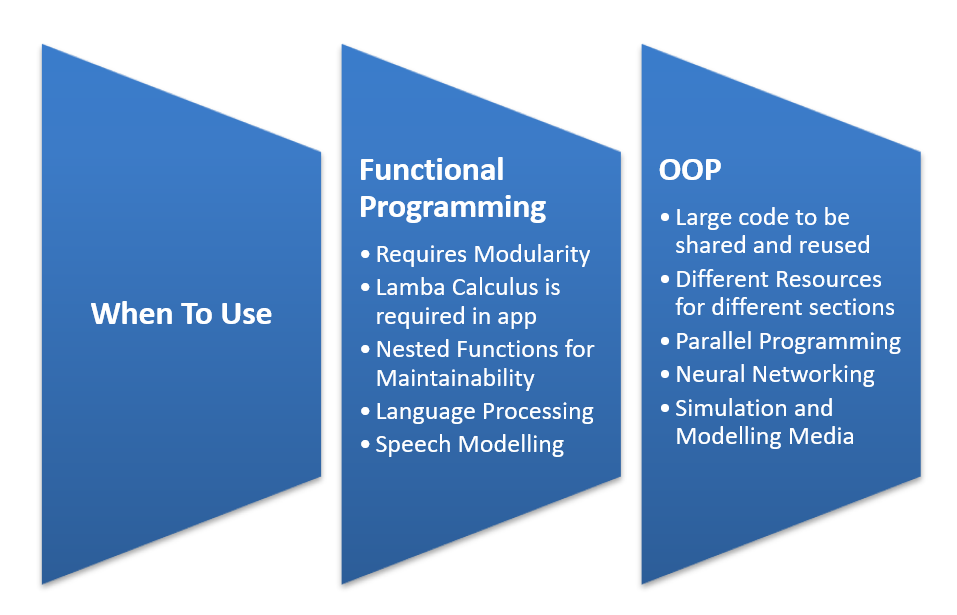
The Absolute Reason: Why is Object-Oriented Programming Popular
OOP paradigm is widely used in the software development industry, and most of the freshers in this field are trained to create computer programs using this approach only.
Along with this, there are other reasons behind its popularity, and one of them is the ease of writing and maintaining code for producing complex code structures. In addition, Abstraction, Polymorphism, Inheritance, and Encapsulation reduce the effort, making them popular among development teams.
Moreover, most desktop and mobile applications we use today are crafted using Java, C++, Objective-C, and Kotlin. Syntax of all these programming languages is based on OOP methodology, making learning about it compulsory.
Also, creating this paradigm in the 90s is why most languages follow it, making it a popular and reliable programming approach.
Accelerate Your Business with Custom Software Solutions
Struggling with outdated or ineffective software? Our expert team provides custom systems designed specifically for your business needs. We analyze your operations, build solutions to fit your workflow and integrate with existing infrastructure.
Concluding Up
Selecting a relevant programming paradigm is the most fundamental requirement of any development team, as overall software structure is dependent on it. And, whenever the step of choosing a paradigm is initiated, most of the team members participate in the discussion of Functional Programming vs. Object-Oriented Programming and analyze the advantages of Functional Programming over object-oriented and vice versa.
Each methodology is unique on its own, and it entirely depends upon the type and complexity of the project while selecting a methodology. However, OOP is the most popular and preferred paradigm due to its extensive usage, flexibility, and maintainability.
When it’s talking to OOP, C++ is the most popular and effective programming language for development.
Expert in Marketing Strategy and Brand Recognition
Jemin Desai is Chief Marketing Officer at Positiwise Software Pvt Ltd, he is responsible for creating and accelerating the company’s marketing strategy and brand recognition across the globe. He has more than 20 years of experience in senior marketing roles at the Inc. 5000 Fastest-Growing Private Companies.
